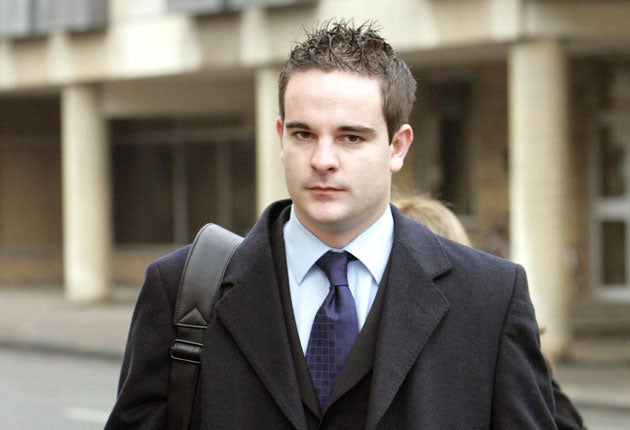Nurse fights murder conviction
Case to be reviewed after medical experts cast doubt on prosecution evidence

A nurse jailed for 30 years for murdering two patients and seriously harming 15 others was convicted of crimes that never took place, new evidence suggests. Benjamin Geen, 29, was found guilty in 2006 of injecting patients with drugs that stopped their breathing in order to satisfy a "lust for excitement" when reviving them. Two men, David Onley, 75, and Anthony Bateman, 66, died.
Lawyers will tomorrow begin fresh efforts to have the conviction overturned. They say Geen, a former Territorial Army lieutenant from Banbury, Oxfordshire, is the victim of a "witch-hunt" in a health service desperate to prevent anything that might echo the case of Harold Shipman, the GP thought to have killed at least 200 of his patients.
Geen was given 17 life sentences after Oxford Crown Court heard that accident & emergency staff at Horton General Hospital suspected he was involved in a spate of respiratory arrests. The prosecution claimed the pattern of 18 cases identified from patient records was so unusual it had to be the work of "a maniac on the loose", and only Geen was on duty in every case. Painkillers and sedatives were said to be the most likely cause.
However, new evidence to be submitted to the Criminal Cases Review Commission this week calls into question the safety of Geen's conviction. A new report by Professor Jane Hutton, a leading medical statistician, found the prosecution had no grounds to say the "pattern" of illness at the hospital was rare or evidence of a murderer on the loose. "The evidence given... was of no value in supporting a conclusion that there was an unusual pattern, nor a conclusion that any unusual pattern was not a chance event," she concluded.
Michael Powers QC, Geen's barrister said: "There has been a major miscarriage of justice. There's a climate that adverse events have got to be explained. We're very anxious to avoid disasters. But there will be times when people are wrongly convicted," he added. Geen's appeal was rejected last November, but lawyers will this week submit a new case to the commission: it can send it back to the Appeal Court if it believes it to be unsafe.
The prosecution case rested in part on Geen's alleged use of muscle-relaxant drugs to stop patients breathing. But Dr Mark Heath, professor of clinical anaesthesiology at New York's Columbia University, found the victims' symptoms inconsistent with the effects of such drugs. "In none of the charts I reviewed does it appear to me the administration of a muscle relaxant is a likely cause," he said.
Central to Geen's case to overturn his conviction is a judgment in December by judges who upheld the conviction of a Newcastle nurse found guilty of murdering four patients with insulin injections, but who ruled that an unusual pattern of illnesses was, on its own, evidentially worthless.
Bookmark popover
Removed from bookmarks